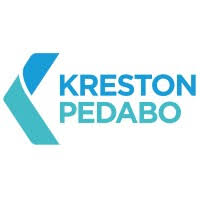The Nigerian business landscape faces a critical juncture, demanding a fundamental shift in how companies perceive and manage risk. A recent seminar in Lagos, themed “Spreading Business Resilience: Integrating Enterprise Risk Management for Sustainable Growth,” highlighted the urgent need for Nigerian firms to embed robust risk management frameworks into their core strategies to attract sustainable investment and navigate the turbulent waters of economic uncertainty. The prevailing weak risk culture, coupled with unpredictable policy changes, poses a significant threat to the long-term resilience of Nigerian businesses. Experts warned that without a proactive and integrated approach to risk management, companies remain vulnerable to a range of internal and external shocks.
A key concern raised by the seminar participants was the alarmingly low adoption rate of Enterprise Risk Management (ERM) among listed Nigerian companies. With only 20% fully integrating ERM principles, the vast majority remain exposed to risks stemming from misaligned strategies and the volatile regulatory environment. This lack of preparedness leaves them reactive rather than proactive, struggling to adapt to rapidly changing market conditions. Olanike Olakanle, Head of Audit, Risk and Internal Control at Lafarge Africa Plc, characterized the situation as “worrying,” emphasizing the disconnect between documented risk management procedures and actual decision-making processes within organizations. This gap, she argued, perpetuates a cycle of avoidable crises. Furthermore, the absence of predictive tools like artificial intelligence, combined with a weak governance culture, hinders companies’ ability to anticipate and mitigate potential risks.
The unpredictable nature of regulatory policies emerged as another major impediment to business confidence and sustainable growth. Biyi Olagbami, Executive Director at Ecobank Nigeria Limited, criticized the frequent “knee-jerk” policy changes, arguing that they create more instability and uncertainty than benefit. He stressed the importance of regulatory stability and foresight, advocating for policies that align with business value and foster a predictable operating environment. Olagbami called for a paradigm shift in how businesses approach risk management, urging them to view it not as a compliance burden but as a strategic enabler. He emphasized the need for risk management to be integrated into the core strategy development process, not relegated to post-event audit reports.
The seminar also underscored the increasingly interconnected nature of global risks, ranging from cybersecurity threats to climate change impacts. Dr. Joseph Atatsi, Academic Director at Wake Forest University and Senior Regulator at the US SEC, warned that Nigerian companies cannot afford to ignore these global trends. He urged them to develop internal capacity and systems capable of anticipating and withstanding global volatility. This necessitates a proactive approach to risk management, leveraging data-driven tools and fostering a culture of risk awareness across all organizational levels. Simply having technology, Olakanle emphasized, isn’t enough; the risk culture must be deeply ingrained within the organizational fabric.
Ajibade Fashina, Managing Partner of Kreston Pedabo, identified a fundamental misconception about ERM as a major obstacle to building resilience. He argued that many companies still view ERM as a mere compliance exercise rather than a strategic tool for identifying and capitalizing on opportunities. Fashina emphasized that the companies that will thrive in the coming decade will be those that understand that risk assessment is not solely about threat mitigation but also about identifying potential avenues for growth and innovation. This perspective shift requires a fundamental change in mindset, moving from a reactive, compliance-driven approach to a proactive, opportunity-focused approach to risk management.
While acknowledging recent regulatory efforts by bodies like the SEC to promote risk-based supervision, the seminar panelists highlighted the significant challenges in implementation. These include a lack of inter-agency coordination, inadequate data collection and analysis, and inconsistent political will. Abiola Ogunleye, Head of Enterprise Risk Management at Seplat Energy Plc, emphasized the need for industry-specific risk management frameworks and consistent maturity across all departments within an organization. She stressed that ERM cannot be confined to silos but must be integrated into the company’s culture, structure, and overall strategy to deliver true value. This holistic approach requires a concerted effort from both the public and private sectors to foster a more robust and resilient business environment.
The seminar concluded with a call for a long-term perspective on resilience building, urging both public and private sector stakeholders to collaborate more effectively. Key recommendations included increased investment in data-driven risk management tools, the development of a more stable and predictable policy environment, and a concerted effort to foster a culture of risk awareness across all levels of the Nigerian business landscape. By embracing a proactive and integrated approach to risk management, Nigerian companies can not only enhance their resilience to external shocks but also unlock new opportunities for sustainable growth and prosperity. The message was clear: risk management is not just a compliance activity; it is a strategic imperative for long-term success in an increasingly complex and volatile world.


